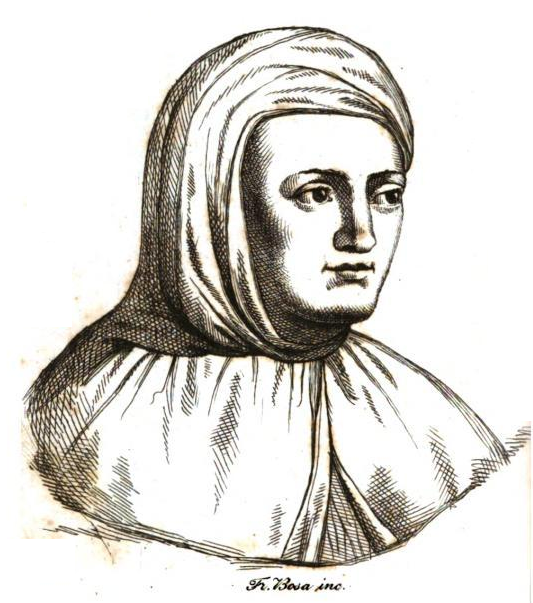Bartolomeo Da San Concordio on:
[Wikipedia]
[Google]
[Amazon]
 Bartholomew of San Concordio ( 1260 at San Concordio, near
Bartholomew of San Concordio ( 1260 at San Concordio, near
 Bartholomew of San Concordio ( 1260 at San Concordio, near
Bartholomew of San Concordio ( 1260 at San Concordio, near Pisa
Pisa ( ; ) is a city and ''comune'' (municipality) in Tuscany, Central Italy, straddling the Arno just before it empties into the Ligurian Sea. It is the capital city of the Province of Pisa. Although Pisa is known worldwide for the Leaning Tow ...
– 11 June 1347 at Pisa) was an Italian Dominican canonist
Canon law (from , , a 'straight measuring rod, ruler') is a set of ordinances and regulations made by ecclesiastical jurisdiction, ecclesiastical authority (church leadership) for the government of a Christian organization or church and its membe ...
and man of letters
An intellectual is a person who engages in critical thinking, research, and reflection about the nature of reality, especially the nature of society and proposed solutions for its normative problems. Coming from the world of culture, either ...
. He was the author of the ''Summa de casibus conscientiae'' (1338) and of the ''Ammaestramenti degli antichi''.
Life
Bartholomew entered the Dominican Order in 1277, studied at Pisa, Bologna, and Paris, and taught at Lucca, Florence, and Pisa. He was appointed lector at the ''studium particularis theologiae'' atSanta Maria sopra Minerva
Santa Maria sopra Minerva is one of the major Church (building), churches of the Order of Preachers (also known as the Dominicans) in Rome, Italy. The church's name derives from the fact that the first Christian church structure on the site was b ...
in 1299, which has sprung from the ''studium provinciale'' at Santa Sabina
The Basilica of Saint Sabina (, ) is a historic church on the Aventine Hill in Rome, Italy. It is a titular minor basilica and mother church of the Roman Catholic Order of Preachers, better known as the Dominicans.
Santa Sabina is the oldest ex ...
in 1288, and which was the forerunner to the College of Saint Thomas at the Minerva convent, and the Pontifical University of Saint Thomas Aquinas, ''Angelicum''.
A preacher of renown, Bartolomeo was as learned as he was devout, as skilled in Latin and Tuscan poetry as he was versed in canon and civil law. He is variously called "Pisana", "Pisanella", "Bartholomaea", and "Magistruccia".
Works
His fame rests chiefly on his alphabetically arranged "Summa de Casibus Conscientiae". The basis of this work was a "Summa Confessorum" by John Rumsik, O. P., Lector ofFreiburg
Freiburg im Breisgau or simply Freiburg is the List of cities in Baden-Württemberg by population, fourth-largest city of the German state of Baden-Württemberg after Stuttgart, Mannheim and Karlsruhe. Its built-up area has a population of abou ...
(d. 1314). Bartholomew arranged Rumsik's topic in alphabetical order, and added material on canon law
Canon law (from , , a 'straight measuring rod, ruler') is a set of ordinances and regulations made by ecclesiastical jurisdiction, ecclesiastical authority (church leadership) for the government of a Christian organization or church and its membe ...
.Ian N. Wood, G. A. Loud, ''Church and Chronicle in the Middle Ages: Essays Presented to John Taylor'' (1991), p. 74.
Bartholomew's treatise was clear and concise, and it conformed to the newer laws and canons of his time. Evidently a highly useful digest, it was very popular and much used during the fourteenth and fifteenth centuries, and was among the first books undertaken by some of the earliest printers of Germany, France, and Italy. Nicholas of Osimo, O.M., added a supplement in 1444, which also appeared in many editions. Others likewise incorporated the work in later handbooks, notably James of Ascoli
James may refer to:
People
* James (given name)
* James (surname)
* James (musician), aka Faruq Mahfuz Anam James, (born 1964), Bollywood musician
* James, brother of Jesus
* King James (disambiguation), various kings named James
* Prince James ...
, O. M., 1464, and Ange de Clavasio, O.M., in his "Summa Angelica".
Apart from several MSS. on moral and literary subjects, his works include "De documentis antiquorum", edited by Albertus Clarius, O. P. (Tarvisi, 1601) in 8 vo. The same treatise in the vernacular, "Ammaestramenti degli antichi" (Florence, 1662), came to be regarded as a Tuscan classic.
References
*Jacques Quétif
Jacques Quétif (; 6 August 1618 – 2 March 1698) was a French Dominican and noted bibliographer. His major work ''Scriptores ordinis praedicatorum'' was completed by his fellow Dominican Jacques Échard.
Quétif was born in Paris. He enter ...
and Jacques Échard
Jacques Échard (22 September 1644, in Rouen
Rouen (, ; or ) is a city on the River Seine, in northwestern France. It is in the prefecture of Regions of France, region of Normandy (administrative region), Normandy and the Departments of Fr ...
, (Paris, 1719), I, 623
* Pierre Mandonnet in ''Dictionnaire de théologie catholique'' (Paris 1903–1950) 2:435–436
* Georg Wolfgang Panzer, ''Älteste Buchdruckergeschichte Nürnbergs'' (Nuremberg, 1789), p. 18, n. 22
* Hugo von Hurter
The von Hurter family belonged to the Swiss nobility; in the eighteenth and nineteenth centuries three of them were known for their conversions to Roman Catholicism, their ecclesiastical careers in Austria and their theological writings.
Friedric ...
, ''Nomenclator'' (Innsbruck, 1906), II, 612
*
Notes
External links
* * * * {{DEFAULTSORT:Concordio, Bartholomew Of San 1347 deaths Italian Dominicans Canon law jurists 14th-century Italian jurists 14th-century writers in Latin Year of birth uncertain